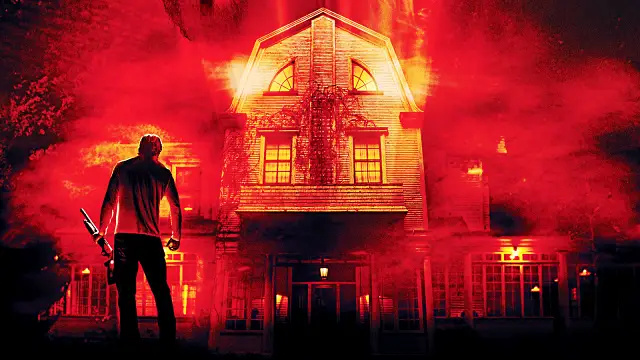In December 1975, George and Kathy Lutz, along with Kathy’s three children, moved into a house at 112 Ocean Avenue in Amityville, New York. They were aware of the house’s dark past. Just a year earlier, Ronald DeFeo Jr. had murdered his entire family while they slept. Despite this chilling history, the Lutz family decided to make the house their home. However, after just 28 days, they fled, claiming terrifying paranormal experiences.
The Lutz Family’s Claims
The Lutzes’ story quickly captured the media’s attention. Their claims inspired Jay Anson’s 1977 book, The Amityville Horror: A True Story, and led to numerous films, including the famous 1979 movie. Over the years, the authenticity of their experiences has been hotly debated. Critics have labeled the Lutzes as opportunistic frauds, while supporters argue that something truly sinister occurred in the house.
Many prominent figures, including journalists, parapsychologists, and psychologists, have weighed in on the Lutz family’s claims. Their investigations have led to various theories and accusations about what really happened at 112 Ocean Avenue.
Daniel Lutz’s Perspective
In the documentary My Amityville Horror, filmmaker Eric Walter interviews Daniel Lutz, who was just 10 years old when his family moved into the infamous house. Daniel has largely remained silent about his experiences until now. His candid conversations reveal the deep psychological scars left by his time in the house.
Daniel recounts his memories, which align with the claims made by his mother and stepfather. However, he also shares his troubled relationship with his stepfather, George Lutz. He describes George as “the biggest fucking asshole you could ever meet,” highlighting the physical and emotional abuse he endured. George passed away in 2006, leaving behind a legacy that Daniel now confronts.
The Role of Psychologists
Throughout the documentary, Daniel interacts with various psychologists, including Elizabeth Loftus. She provides a critical perspective on memory and trauma. Loftus suggests that Daniel’s recollections may be influenced by the passage of time and his challenging teenage years. While she offers a voice of reason, many of Daniel’s claims remain unchallenged, creating a one-sided narrative.
The Impact of Trauma
As the documentary unfolds, it becomes clear that the Lutz children faced significant emotional turmoil. Daniel’s sense of entitlement and defensiveness may stem from his traumatic upbringing. He expresses a strong desire to share his story, feeling that he was silenced during the initial media frenzy.
Daniel reveals that he was sent to a strict Catholic boarding school, where he faced harsh treatment from overzealous priests. He claims they attempted to exorcise him multiple times while his parents traveled the world promoting their paranormal experiences. This revelation adds another layer of complexity to his story.
The Question of Haunting
Whether or not 112 Ocean Avenue was truly haunted remains a topic of debate. However, it is undeniable that the events surrounding the Lutz family have left lasting psychological scars. The documentary raises many questions about the nature of their experiences, but by the end, few answers are provided.
Conclusion
My Amityville Horror offers a unique glimpse into the life of Daniel Lutz, a man grappling with the shadows of his past. While the world focused on the alleged haunting, it overlooked the profound impact these events had on the Lutz children. Daniel’s story is not just about ghosts and paranormal activity; it is also about the real horrors of domestic abuse and family dysfunction.
As viewers, we are left to ponder the true nature of the events at 112 Ocean Avenue. The legacy of the Amityville Horror continues to haunt not only the house but also those who lived there. Daniel Lutz’s journey serves as a reminder that sometimes, the most terrifying experiences are not supernatural but deeply personal.

